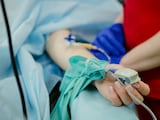Salmonella is a group of bacteria that can cause infections in humans, commonly known as salmonellosis. It is one of the most frequent causes of foodborne illnesses worldwide. When a person becomes infected, the bacteria usually affect the intestinal tract, leading to symptoms such as diarrhoea, abdominal cramps, fever, nausea, and vomiting. While most people recover within a week without specific treatment, severe cases can occur, especially in young children, older adults, and those with weakened immune systems, sometimes requiring hospitalisation.
The primary cause of Salmonella infection is the consumption of food or water contaminated with the bacteria. It is commonly found in undercooked or raw meat (especially poultry), eggs, seafood, unpasteurised milk, and even fruits and vegetables that have been exposed to contaminated soil, water, or handling during processing. Cross-contamination in kitchens, such as using the same cutting board for raw meat and fresh produce without proper cleaning, is also a major source of infection. Another cause is contact with infected animals or their environments. Reptiles (like turtles, snakes, and lizards), amphibians, and even some pets such as chicks or ducks often carry Salmonella in their intestines without showing signs of illness, but they can spread it to humans through direct or indirect contact.
Additionally, poor hygiene and unsafe food handling practices increase the risk. Not washing hands thoroughly after using the toilet, handling animals, or preparing raw foods can easily transfer the bacteria. Outbreaks often occur when contaminated foods are mass-distributed, leading to widespread infections in communities. Keep reading as we share tips to help you prevent salmonella.
10 Tips to help prevent Salmonella infection
1. Cook food thoroughly
Undercooked meat, especially poultry, eggs, and seafood, is one of the leading causes of Salmonella. Always cook chicken until the internal temperature reaches at least 74°C (165°F) and eggs until both the yolk and white are firm. Using a food thermometer can help ensure meats are cooked safely, especially during barbecues or large family meals.
2. Avoid raw or unpasteurised foods
Raw milk, unpasteurised dairy products, and juices can carry Salmonella. Consuming pasteurised versions greatly reduces the risk. Similarly, raw or undercooked eggs in foods like homemade mayonnaise, cookie dough, or desserts like mousse can harbour bacteria, opt for pasteurised eggs instead.
3. Wash fruits and vegetables properly
Even fresh produce can be contaminated through soil, water, or handling. Wash all fruits and vegetables thoroughly under running water before eating, peeling, or cooking. For produce with thick skin (like melons), scrub with a clean brush to prevent bacteria from being transferred when cutting.
4. Prevent cross-contamination in the kitchen
Use separate cutting boards for raw meats and fresh foods like salads or fruits. Always wash knives, utensils, and surfaces with hot, soapy water after preparing raw meat, poultry, or seafood. This simple habit can prevent bacteria from spreading to foods that won't be cooked further.
5. Wash hands frequently
Hand hygiene is critical in preventing Salmonella. Wash your hands with soap and water for at least 20 seconds after using the toilet, changing diapers, touching pets, handling raw food, or gardening. Alcohol-based sanitisers can help when soap and water are unavailable, but handwashing is more effective.
6. Keep refrigerators cold and clean
Salmonella thrives at room temperature. Store perishable foods at or below 4°C and frozen foods at -18°C. Leftovers should be refrigerated within two hours (or one hour in hot climates). Regularly clean the refrigerator to prevent bacterial buildup and avoid overcrowding, which restricts airflow and cooling.
7. Avoid contact with certain animals
Reptiles (turtles, lizards, snakes), amphibians (frogs, toads), and even baby chicks and ducks often carry Salmonella. Avoid direct contact with these animals, especially for young children, the elderly, or immunocompromised people. If contact is unavoidable, thorough handwashing afterward is essential.
8. Be careful when dining out
Foodborne outbreaks are often linked to restaurants or street food stalls with poor hygiene practices. Choose eateries that maintain good cleanliness standards, ensure food is served hot, and avoid foods that look undercooked or left sitting out. When in doubt, don't eat it.
By combining these habits you can significantly reduce the chances of Salmonella infection at home and outside.
Disclaimer: This content including advice provides generic information only. It is in no way a substitute for a qualified medical opinion. Always consult a specialist or your doctor for more information. NDTV does not claim responsibility for this information.















